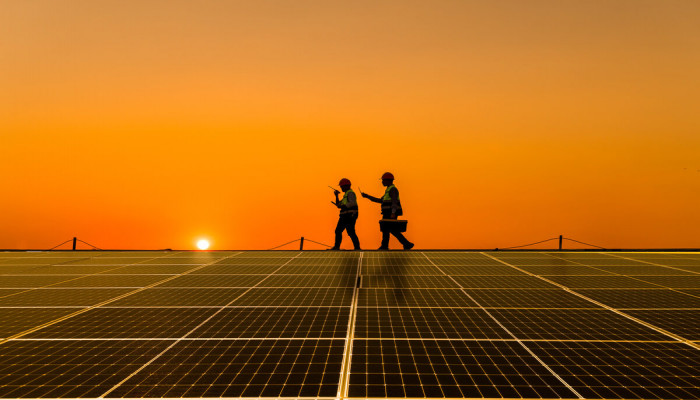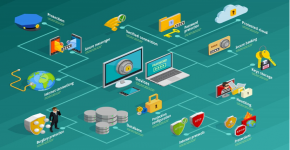 Launch apps instantly. Claim $200 credits on DigitalOcean
Launch apps instantly. Claim $200 credits on DigitalOcean
Maximizing Solar Energy Efficiency in Your Home
Written by Valerie » Updated on: March 29th, 2024

The push for renewable energy sources grows stronger every year, and for good reason. The sun, our most reliable and abundant power source, provides the energy we need to sustain our daily lives. If you have or are considering a solar panel system for your home, understanding how to maximize its efficiency is crucial. Doing so helps you save on utility bills and protects the earth by reducing your carbon footprint.
Understanding the Basics of Solar Panels
Before discussing how to get the most out of your solar panels, it's important to understand how they work. Solar panels are made up of photovoltaic cells that capture sunlight. The cells convert sunlight's direct current (DC) electricity, which then passes through an inverter, which converts it into the alternating current (AC) electricity used in your home.
But how efficient is this process? Most solar panels on the market today can convert about 15-22% of the sunlight they capture into usable energy. This seems low, but it's quite good compared to the efficiency of fossil fuel power plants, which typically operate at about 33%. Additionally, solar technology is rapidly improving, with some cutting-edge panels already reaching efficiencies of over 40%.
Roof Orientation and Tilt
The angle and direction of your roof can affect the performance of your solar panels. Ideally, your roof should face south or west to capture the most sunlight throughout the day. The specific angle of your roof also matters. If you're in the northern hemisphere, a tilt equal to your latitude plus 10-15 degrees can optimize energy production.
If your flat roof or geographic location doesn't allow for ideal placement, a solar racking system can adjust the tilt and angle of your panels. It's also worth noting that seasonal changes in the sun's path should be considered; a professional assessment can help ensure your panels are strategically placed.
Regular Maintenance and Cleaning
Dirt, dust, and bird droppings that accumulate on the surface of your panels can impede efficiency. Regular cleaning can help maintain their energy conversion capabilities. Be sure to consult the manufacturer's guidelines to prevent damage, as some cleaning solutions or abrasive materials can do more harm than good.
In addition to cleaning, check for shading issues caused by growing vegetation or nearby structures. Pruning trees and bushes can often restore sunlight to your panels and maximize their performance.
Investing in Battery Storage
One of solar power's main limitations is its intermittent nature. Without access to sunlight (during the night or on cloudy days), electricity generation will be cut off. This is where battery storage systems come in—saving energy for later use allows you to continue to power your home when the sun isn't shining.
Solar batteries, such as the popular Tesla Powerwall, store excess energy your panels produce. Then, when you need it, the battery can release that stored energy back to your home, effectively extending your ability to power your home with solar energy.
Enhancing Energy Efficiency Within Your Home
Energy efficiency isn't just about how your solar panels are performing. It's also about how you use the energy they produce. Making your home more energy-efficient can go a long way toward maximizing the value of your solar investment.
Upgrading to energy-efficient appliances, installing LED lighting, and ensuring proper insulation and sealing of your home's structure can significantly reduce energy consumption. The less energy you use, the more impact each kilowatt-hour generated by your solar panels will have on your overall energy needs.
Smart Technology and Monitoring
Modern technology offers a range of tools to help you monitor and control your solar energy system. Smart thermostats, energy monitoring apps, and home automation systems can give you precise insights into your energy consumption. It helps make informed decisions about when to use or store your solar energy.
These devices can also alert you to issues with your solar panels or system that may diminish performance. Regular monitoring can catch these issues early, leading to quicker solutions and less downtime for your solar energy system.
Conclusion
Adopting a solar energy system for your home is not just a personal statement about the importance of sustainability—it's a practical investment in the future. By understanding how to maximize the efficiency of your solar panels and by adopting energy-saving habits within your home, you contribute to a greener planet while enjoying the economic benefits of free, sustainable electricity. With advances in technology, the future looks brighter than ever.
Copyright © 2024 IndiBlogHub.com Hosted on Digital Ocean









Post a Comment
To leave a comment, please Login or Register